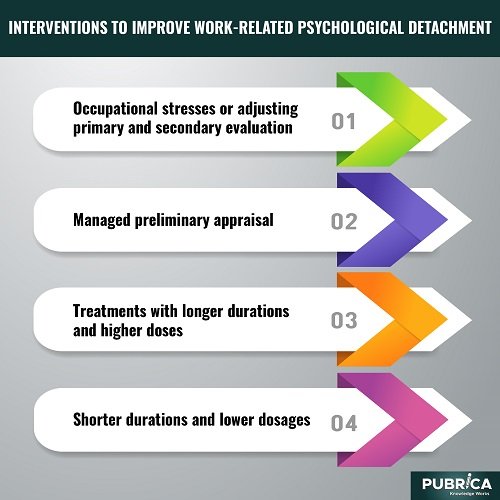Interventions to improve work-related psychological detachment
Employee health and well-being require psychological dissociation from work during off-work hours. This, however, can be difficult to accomplish, especially when job stress is high and recuperation is critical. Many employees and companies are interested in increasing their detachment from work, and several treatments have been created and assessed over the last decade. This meta-analysis aimed to examine and statistically synthesise the current research on therapies to promote detachment at work and home. 30 studies with 34 interventions (N = 3,725) were included after a comprehensive search of the published and unpublished literature (encompassing the years 1998-2020). A random-effects model was used to examine the data. On average, interventions had a favourable effect on work detachment (d = 0.36). According to moderator analyses, the setting in which detachment was measured (outside or at work) substantially affected intervention success. It didn’t matter how the other research conceived detachment.

Furthermore, we discovered that while treatments addressing occupational stresses or adjusting primary and secondary evaluation were successful, only those that managed preliminary appraisal were more effective than those that did not. Furthermore, while the delivery format did not influence intervention efficacy, treatments with longer durations and higher doses were more successful than those with shorter durations and lower dosages. Finally, treatments were more beneficial among older individuals and those who had health or recovery-related impairments at the start of the study.
References
Karabinski T, Haun VC, Nübold A, Wendsche J, Wegge J. Interventions for improving psychological detachment from work: A meta-analysis. J Occup Health Psychol. 2021 Jun;26(3):224-242. doi: 10.1037/ocp0000280. PMID: 34096763.
